The Pride and the Fall
I saw a sad documentary last night about Bikram Choudry, the founder of Bikram Yoga. Today, teachers of his work are changing the name of their studios to dissociate themselves from him. A self proclaimed hero of a yoga movement of millions, he has now been branded the villain, accused of sexual impropriety with several of his students.
Another guru falls…
I am not here to judge the man himself, but I can’t help but notice the trend that often occurs when leaders achieve success in their field, especially in the healing world. The temptation to harvest what is not theirs to own is too much to refuse. Idolatry raises their own self-view. The ego takes over and the humility with which they began, appears to dissolve.
The Wounded Healer
Here’s another story. John graduated from our Facilitator Training some time ago. A tender soul who struggled on his journey to complete the course, he grew into one of the finest facilitators we have. He went from being suicidal to holding space for others suffering in the shadows. From a completely shattered ego, John offered his sensitive, caring support for those who needed it.
All was fine, until one day his girlfriend put him down for holding space even though he wasn’t enlightened. This threw John into a spin – he’d never claimed to be perfect, just to do his best.
John crashed. His confidence shattered, he became reclusive and stopped his practice.
This second story sheds light on another aspect of leadership. Just like the ego got Bikram into trouble, it can also undermine our confidence to serve. It can confuse us into thinking we are not good enough.
It is quite likely during our growth as facilitators that we will be challenged. One of the risks at being good at what we do is the jealousy, judgment or stories of another that get projected upon us. As much as it might be adulation, it may also be condemnation. Both these stories show the importance of holding steady amongst the full range of possible reactions that our clients, or ‘followers’ may have.
As the leader, we may meet either adulation or judgment. Our goal is to listen to the inner voice of wisdom, connect to the purpose we have embodied and Stay On Course.
A true leader is born from inner leadership – as humble as Ghandi, with no interest in being elevated by the need of his followers; yet ready to stand firm in the face of inappropriate critique. A fine balance!
From the student’s point of view, we need to be sure that we are not projecting our own ‘neediness’ or sense of ‘incompleteness’ onto someone else in the hope that they can provide us with fulfilment. Doing so may provide us with a feeling of certainty, security and purpose, however, if it’s at the cost of our personal responsibility or our ability to discern, it can fuel aggrandisement and elevate the teacher beyond his level of merit. It also propels the guru into a role that inevitably goes sour.
An Example for Us All
Once upon a time, in 1929, a young Indian man named Jiddu Krishnamurti had an important appointment. He was to be announced as a new world leader of consciousness. Hand-picked by the leaders of the Theosophy movement at the age of 10, he was educated in England at the best institutions and groomed to be the Messiah.
Once upon a time, in 1929, a young Indian man named Jiddu Krishnamurti had an important appointment. He was to be announced as a new world leader of consciousness. Hand-picked by the leaders of the Theosophy movement at the age of 10, he was educated in England at the best institutions and groomed to be the Messiah.
At this auspicious event, broadcast over radio to communities all over the world, Krishnamurti had a surprise to share. Even though thousands were celebrating his debut he declined the appointment, making it clear that he did not believe in the role itself. He denounced himself as a guru, and said he did not want followers.
He travelled for the next 65 years teaching, but always stepping aside from the role of guru. Loath to control people’s thought processes he remained on his humble path of encouraging students to inquire, simply inquire into everything.
For those that have studied him, Krishnamurti is a reminder of all the reasons not to be so foolhardy as to invest belief in a human being as being greater than oneself.
Returning to our role as leaders in today’s world, may we also remember that it is not our role to take advantage of the belief bestowed upon us by others. It is our role to lead ourselves. Any teaching that we may convey should be the result – not of proclamation or dogma – but of our own becoming, of who we are.
I may work with thousands of breathers, yet because some see me as their savior does not make me so. I am as flawed as those that ‘follow’ me, and my joy is to hand back the power they sometimes want to give away. There is no greater belief than Spirit itself, and with the Breath we have access to the divine without need for interpreters or guru’s.
Now we return to the story of John; a man wounded because he was told he was not ‘ready’ to hold space. When John spoke to me I felt an old wound awakened in me too, but what struck me even more was that here was someone willing to feel his wound, to stay in inquiry and to bear the discomfort. Even when he felt there was no hope left, he honored his commitment and stuck with it. This is the stuff of leadership, the willingness to greet and embrace every part of the self, not just the shiny stuff.
We all have more to learn; if we didn’t we wouldn’t still be here. Yet we cannot ignore the desperate conditions we see in the world. Neither can we indulge our weakness thinking we need to be fixed, complete and enlightened before we do what we can to help. To strive for perfection, or postpone holding space for others until we have fully ‘evolved’ is to give our power away to the Dark Narcissist that lives in each of us.
So while we need to maintain self-care in order to be of value, let us not set ourselves up to be heroes, villains or victims, but to show up warts and all, to stand up for the greatest values.
May we hear and be heard. May we see and be seen. May we feel and be felt. May we love and be loved.







